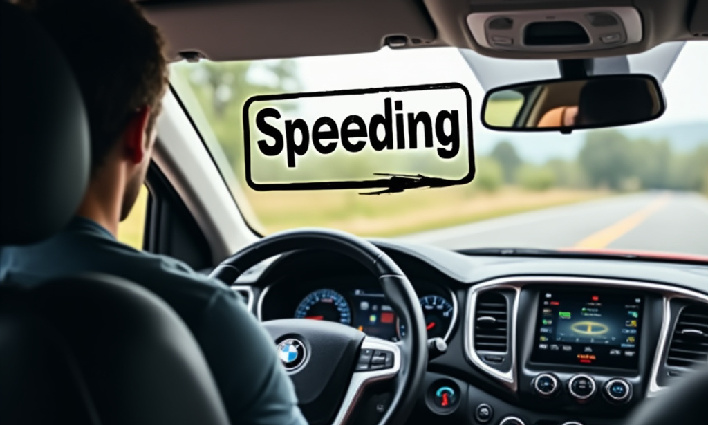California Wants To Nag Drivers With Speed Warnings As A Standard Vehicle Feature
California is known for doing things differently than other states, such as its digital license plates. If passed, bill SB 961 would require all 2030 model-year vehicles to come equipped with either GPS or a front-facing camera that has a visual and audio warning when someone is driving more than 10mph over the posted speed limit. It is important to note, provisions within the bill as written now ensures drivers can fully disable the systems. It's not clear, however, if this would a set-it-and-forget-it thing, or if it would be reset each time the car is started.
The bill states, “…commencing with the 2030 model year, every passenger vehicle, motortruck, and bus manufactured, sold as new, or leased as new in the state to be equipped with a passive intelligent speed assistance system, as specified, that would utilize a brief, one-time, visual and audio signal to alert the driver each time the speed of the vehicle is more than 10 miles per hour over the speed limit.”

SB 961 has passed through California’s senate and assembly floor. Next up is Governor Newsom, who can either sign it into law, or veto it. If Newsom signs it, the legislature would have 60 days to override it.
While new vehicles in the EU require similar devices, the EC also gave automakers the option to add an active accelerator pedal that applies counterpressure against the driver’s foot, or a governor that restricts the vehicle to stay within the speed limit. If automakers choose to go that route, the devices must default to their active state at startup. So far, measures of this type have not made its way into California’s proposed law.
“This is not some type of new technology. This is established technology that is already in vehicles in this country and other parts of the world,” remarked the bill’s author, State Senator Scott Wiener.
However, some automotive groups oppose the new law, and are urging Governor Newsom not to sign it into law. The group’s reasoning is to avoid 50 states coming up with 50 competing sets of vehicle technology and safety rules. The Alliance for Automotive Innovation is one of those groups who feel California would be wrong in passing such a law.
“Automakers agree more can and must be done to reduce excessive speeding on roadways,” remarked a spokesperson for the Alliance for Automotive Innovation. It countered the law by adding, “This should include: more enforcement of speeding laws and driver education.”
Governor Newsom has until September 30, 2024, to decide on whether to sign SB 961 into law.
What are your thoughts about requiring devices to alert drivers when they are speeding? Let us know in the comments.


